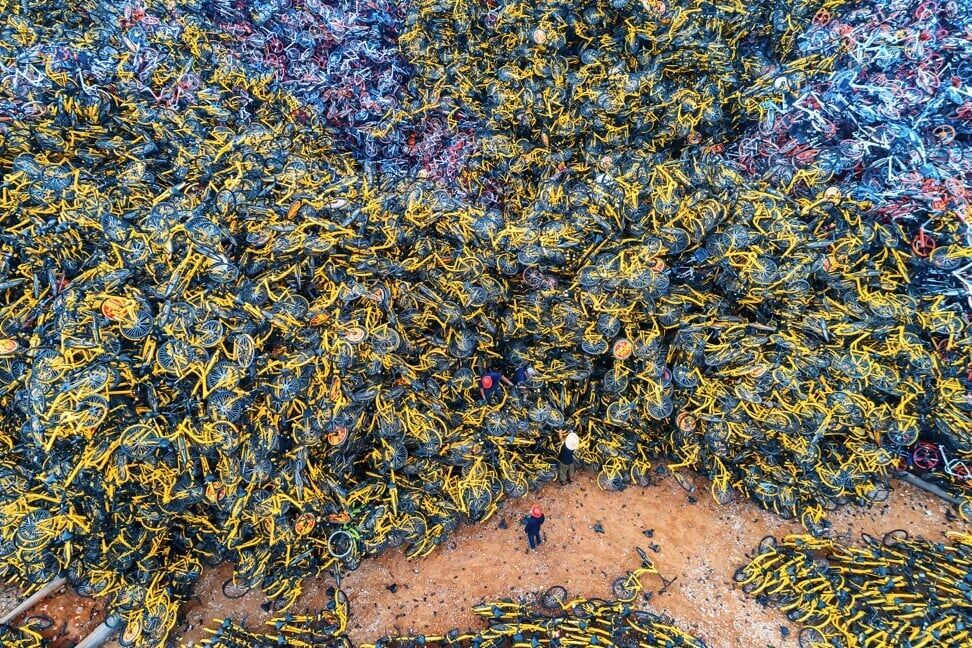 Almost everything in China is done on a scale that is just about unimaginable for us.
Almost everything in China is done on a scale that is just about unimaginable for us.
As an example, The U.S. has nine cities with populations of the urban area above 5 million — New York, L.A., Chicago, Miami, Houston, Dallas, Philadelphia, D.C., and Atlanta.
By contrast, China has 20 cities over 5 million, including five that are over 15 million.

And the scale of their bike sharing? Here’s a photo of unused bikes from bankrupt businesses.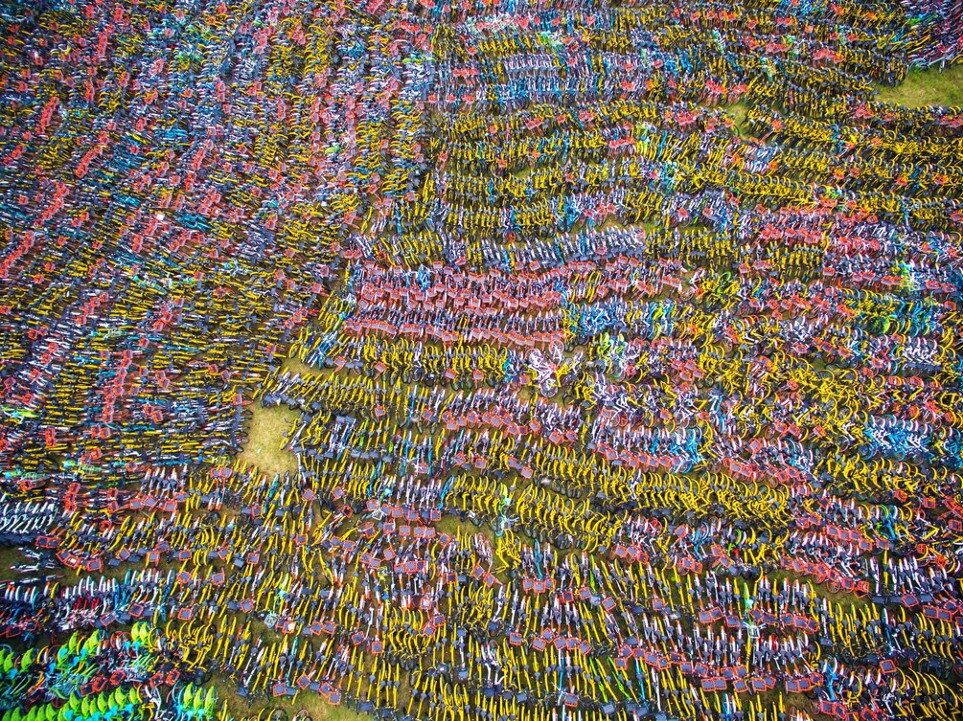
China has an odd sort of a free-market economy. When a variety of start-up companies (each with lots of financial backing) all wanted to dominate the bicycle-sharing market, each company tried to out-compete the other.
The results were more shared bicycles than even China could utilize, and lots of bankruptcies. So what happens when bike-sharing companies that own millions of bikes go out of business? The photos here tell the story.
These are dockless sharing bikes — pick them up anywhere, and leave them anywhere. Payment is done through the user’s smartphone. The cost is about 15 to 25-cents for 15 minutes of use, or $2 for 7 days use, or unlimited for $5 a month. During the “price wars” as companies jockeyed for dominance in certain markets, prices dropped to as low as 1.5 cents (US) per use — a money-losing income for the company… and thus the bankruptcies.
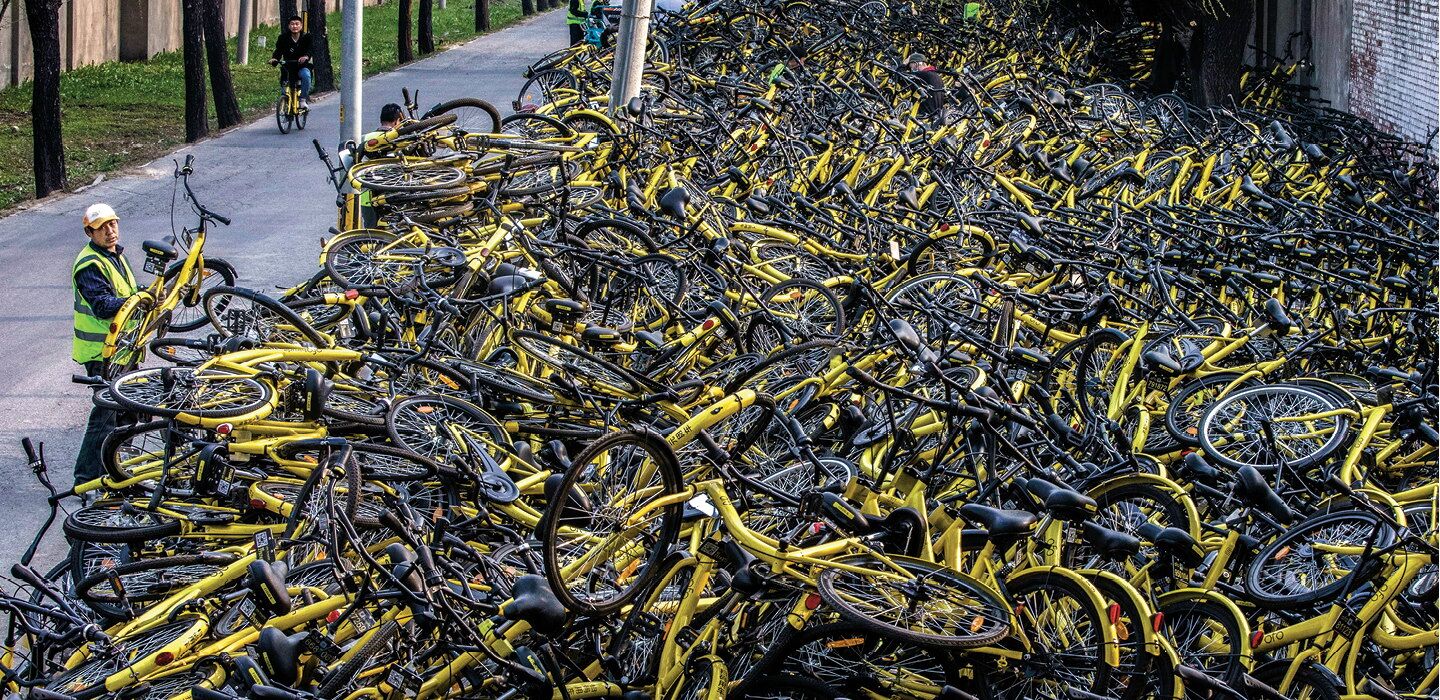 All this happened in 2017. That year, “Mobike” had more than 7 million bikes and 200 million registered users internationally, including in the U.S. They now operate only in China. At the peak, there was roughly 1 shared bike available for every 16 people in Shanghai. In Beijing there were shared bikes available for 93% of the population.
All this happened in 2017. That year, “Mobike” had more than 7 million bikes and 200 million registered users internationally, including in the U.S. They now operate only in China. At the peak, there was roughly 1 shared bike available for every 16 people in Shanghai. In Beijing there were shared bikes available for 93% of the population.
The number of bicycles that were scrapped ran into the tens of millions — likely around 25 to 30 million bikes. When the Mobike company was sold and assets disbursed, 7.2 million bikes were scrapped. For various reasons, they could not be sold to individuals. Why didn’t the government just give them away? Who knows.
Typically the bikes cost under $50 to make, with some fancy models with solar power and GPS displays costing $250 or so. (Prices here are in US Dollars.) Recyclers paid about $2 to $4 per bike. They recycle the steel and rubber for a $1.50 per bike profit.
And now the bikes that replaced that original bunch are being scrapped again, as people want to rent only electric-powered bikes.
There are numerous articles on-line about the collapse and the aftermath. If you want to read more, here are some:
2021: After the Crash: Checking In on China’s Bike-Sharing Industry
2018: The Trouble with Sharing:
China’s Bike Fever Has Reached Saturation Point
2020: What happens to discarded bikes from China’s sharing boom?
Taxpayers pay to clear 25 million of them from bicycle graveyards
(South China Morning Post)
2020: The rise and fall of Mobike and Ofo, China’s bike-sharing twin stars
(South China Morning Post)
Photos are from about 2017.







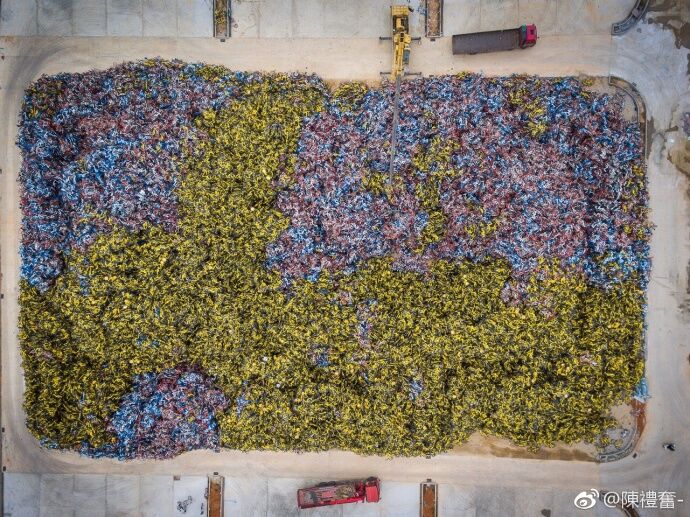

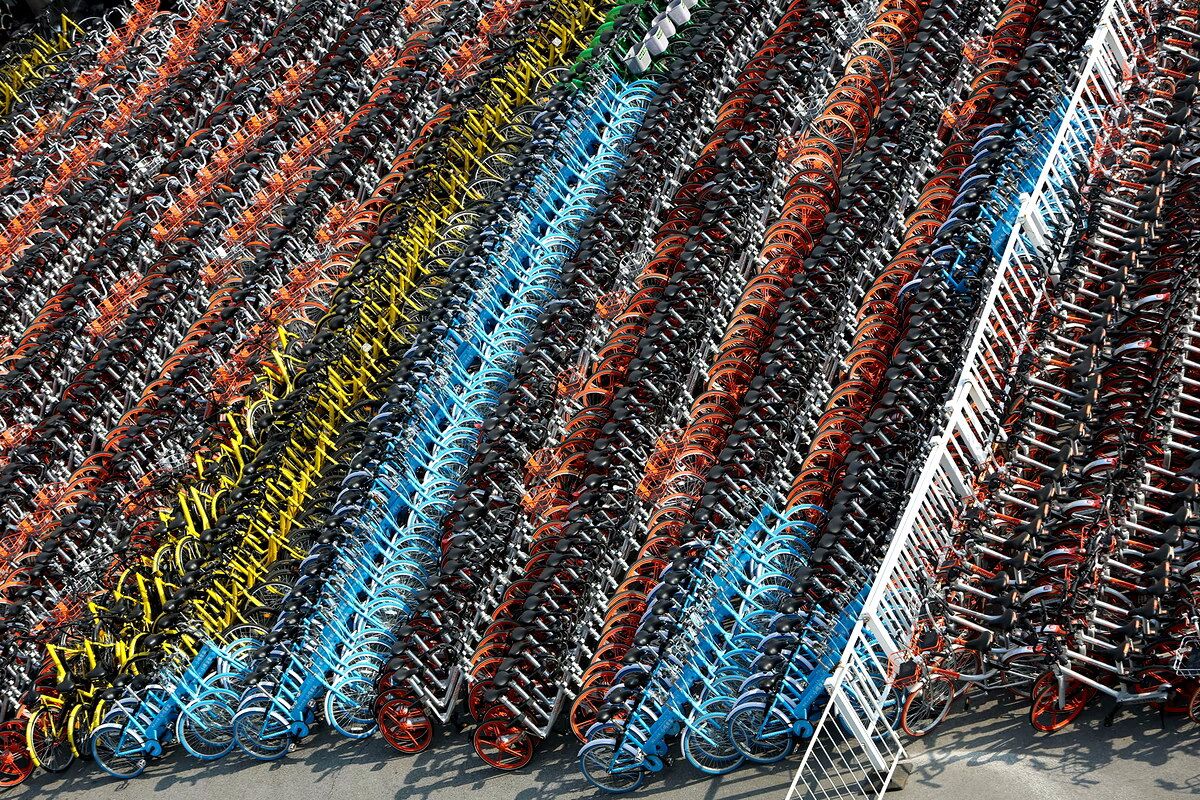



Bike-sharing, in which users can pick up bicycles on the street and leave them anywhere when finished, has been a standout success since being introduced in the last two years and latest official figures say there are now 10 million such bikes ploughing the streets of China. / AFP PHOTO / STR / China OUT (Photo credit should read STR/AFP/Getty Images)

Shanghai has impounded thousands of brightly coloured bikes placed on city streets by cycle-sharing companies, in the latest sign of impatience with an explosion of the haphazardly-parked two-wheelers. / AFP PHOTO / Johannes EISELE (Photo credit should read JOHANNES EISELE/AFP/Getty Images)
